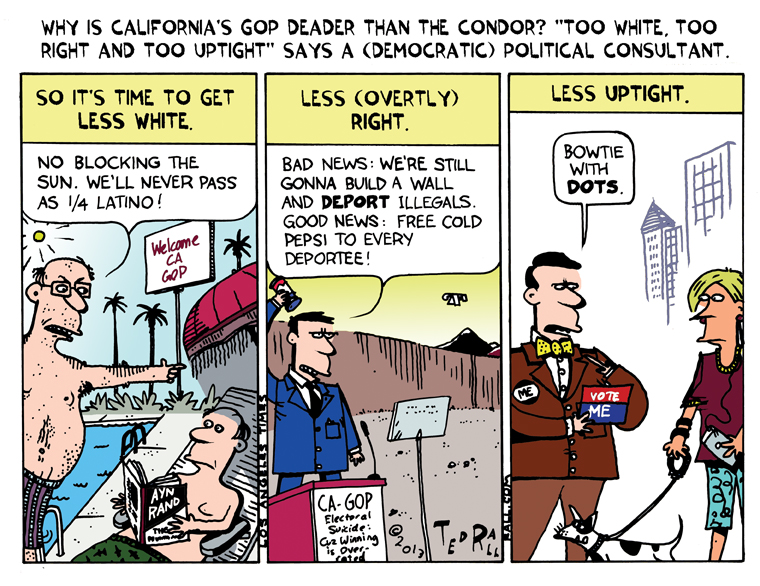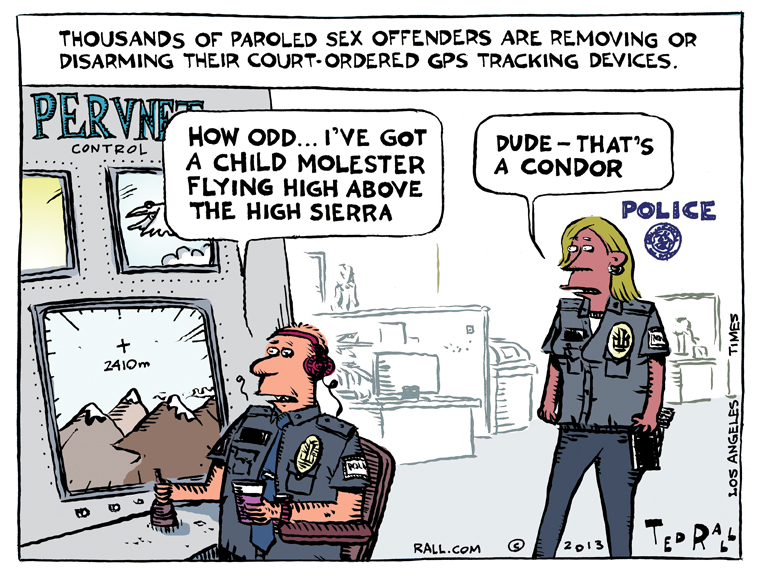I draw cartoons for The Los Angeles Times about issues related to California and the Southland (metro Los Angeles).
This week: The California state Republican Party has been declared dead and gone. Why? According to a Democratic political consultant, the state GOP is too white, to write, and too uptight. What if the party were to take the advice and straighten up in order to appeal to more voters In an increasingly liberal state?


